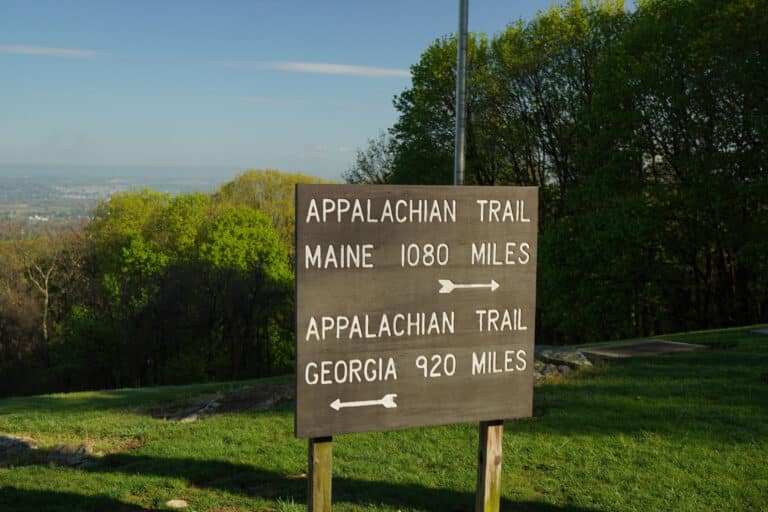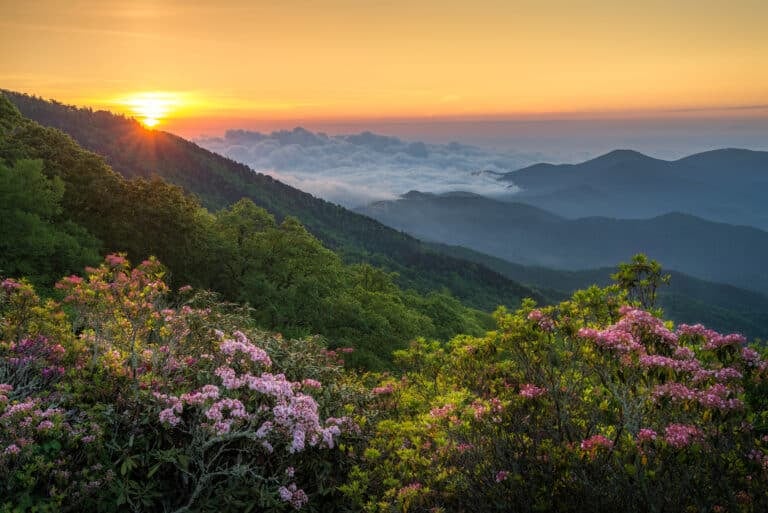Rose Chilcoat doesn’t mind being called an old broad. She’s one of the outspoken leaders of the Great Old Broads for Wilderness-a national, grassroots nonprofit organization of mainly senior citizen women dedicated to protecting the roadless public lands of America. Formed in 1989 to celebrate the 25th Anniversary of the Wilderness Act, Old Broads has membership in every state.
A native of Maryland, Chilcoat traveled with the Old Broads this fall to help the Great Smoky Mountains Coalition bring broader attention to the issue of the North Shore Road-a proposed road along the north shore of Fontana Lake that would cut across the largest roadless area in the eastern mountains.
BRO: What was the idea when the Broads first came together?
RC: In 1989, Republican Senator Orrin Hatch made a famous statement that we need to build more roads in the wilderness so the elderly can access those places. That was the burr under the saddle of a group of politically-savvy, very avid outdoor-enthusiast women, who were all over 50 at the time. When they heard that, they realized that their collective voice was missing from the environmental movement. Supposedly these women were sitting in a café, dirty and muddy after a backpacking trip, when one of them got up to go to the bathroom. Someone looked up and said, “Wow, there goes an old broad.”
BRO: Why do you feel your age makes you more successful in environmental activism?
RC: Even in America, people still take time to listen when a gray-haired older person is speaking. There’s the wisdom of years and experience. Older women are survivors, and they know how to come through adversity with grace. We speak not stridently but passionately, with a sense that it’s time to mother nature now.
BRO: What unique methods have the Old Broads found to protect wilderness?
RC: Our name, who we are, and our sense of humor. We play off of Broadness all time, whether we’re trying to broaden our reach or be broad-minded about things. We’re an additive voice to the grassroots organizations that have been doing all of the hard work. We can come in and attract media attention in a way that the locals can’t.
BRO: What were the most successful points in your recent Smokies visit?
RC: We put out feelers to the local grassroots groups and asked what they wanted help with. All of them said the North Shore Road. After 62 years of re-wilding, the North Shore corridor is an amazing area. To put a road in there would be a huge travesty and a big waste of taxpayer dollars, especially when we have more immediate and important priorities.
One of the highlights was having the proponents of the road sit down with us. Some people questioned that, but that’s the way Broads does things. We like to sit down with the opposition and respectfully listen, because we believe there are common values on almost every issue. It ended up being a wonderful give-and-take and sharing of information in a way that apparently hasn’t happened yet. We like to be holistic and include all of the players.
BRO: Does this work ever feel hopeless in the midst of our current political climate?
RC: We could let it be that way, but we’re Broads, and we’re survivors. We’ve been through hopeless moments, and we’re old enough and wise enough to know that hope works. We know change can happen and the pendulum will swing.







